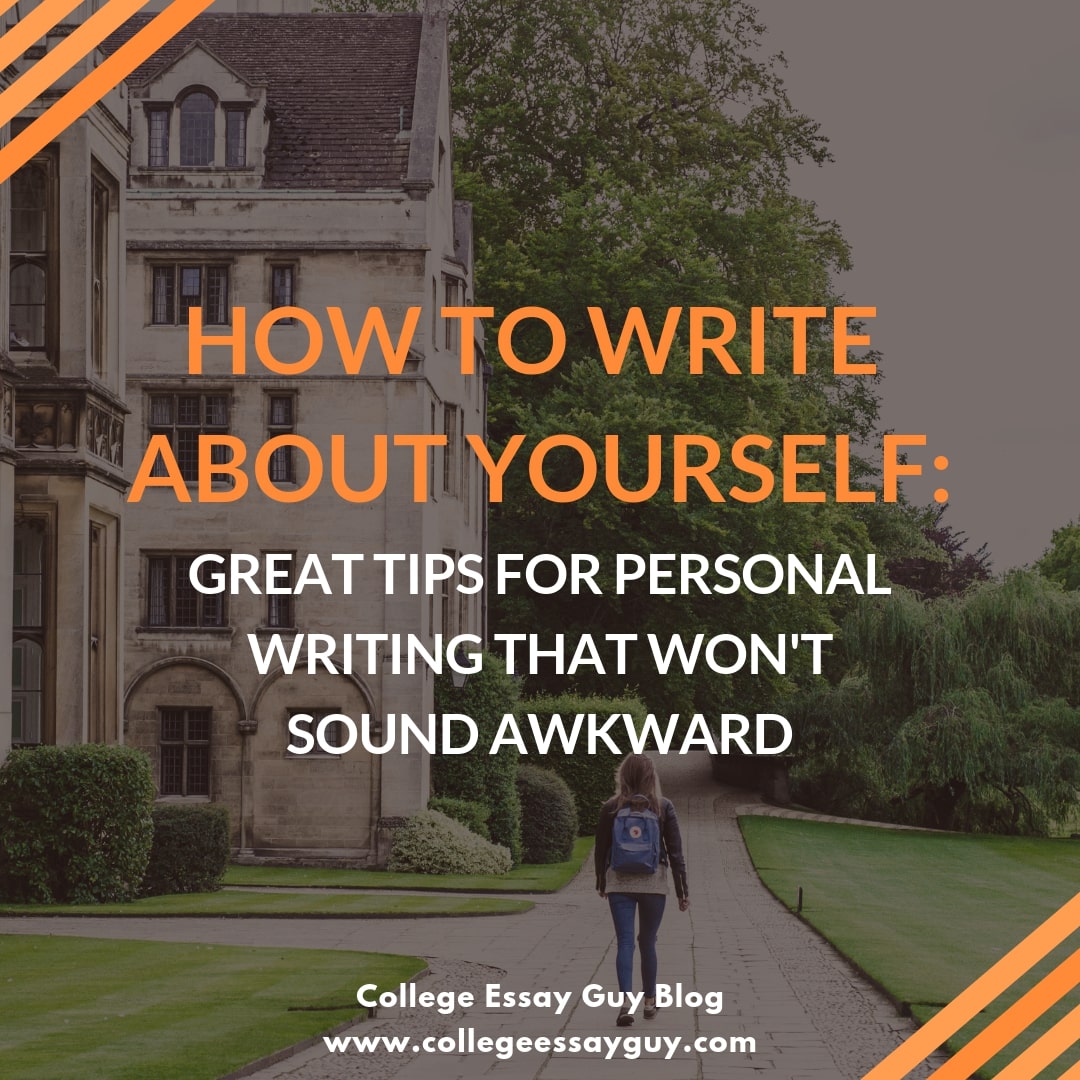An introduction is what makes people interested in your story and engages them to read the whole thing, but the conclusion is what leaves a lasting impression — therefore you want to make it powerful. The conclusion of your autobiography is a great place to assess your life, assess the lessons you’ve learned, and state how they took you to where you are now. Like your intro, your conclusion shouldn’t be too long. Keep it clear and concise.
Once you have a specific plan in mind, you can create your first draft. Follow your outline to ensure that you don’t miss anything important, and don’t rush.
An essential part of writing a great paper is creating a proper title page. Just like selecting a font and font size, title page requirements could vary based on the standards of the institution you are writing for. However, there are some commonly established rules when it comes to making a title page. The following information usually goes on the title page:
Although many people skip this step, writing a good outline can really make the writing process more simple and productive. There are plenty of reasons that indicate the importance of planning. Most importantly, writing an outline helps you follow the right structure and sequence, and helps ensure that you won’t miss out on important details.
Step 1: Find an Example
![]()
Although writing a good autobiography may seem difficult, it is only difficult when you don’t know what steps to take to handle the task. In this post, we’ve collected key steps, rules, examples, and tips that will guide you through the process of writing. By the end of this blog, you will be able to craft a flawless piece about yourself. Let’s dive in!
Before we can move on to our writing tips, it is important to define what an autobiography is and specify its different types. In a nutshell, an autobiography is a self-written piece that reflects the timeline of an author’s life. Such pieces are written in the narrative form, and can serve several purposes — depending on the specific type of writing.
Although the exact structure of your text will depend on the chosen type of autobiographical writing, there are some basic principles to bear in mind. Similar to any other type of essay, an autobiographical one should consist of three main blocks:

- Educational background
- Work background
- Skills and knowledge
- Life goals
- Hobbies
- My early days at school
- How I survived my college years
- My first work experience
- Looking through the mirror
- Homecoming
- How my friends influenced my interests
- The art of telling lies
- Learning English (a good topic for international students)
- The impact of my brother on my life
For the affordable price, you can get an eye-catching introduction of any reflective essay.
We have discussed so far how to start a essay about yourself and the overall structure recommendations. Here we go with the top topic ideas for the personal essay. If you want to avoid difficult argumentative essay topics, you may find some great ideas on this blog. Choose one of them:
How Do You Start an Essay about Yourself

Second, you should describe an experience which is related to your education. Describing your first wedding ceremony or gig with the music band is not the best idea. It is better to dedicate time to the things you've learned from school, college, or other educational institutions. If you have a specific person who inspired you to enter target college or work in the certain field, reflect this role model.
Even though the essay about you should be focused on your name and deeds, do not start writing with the trivial phrases introducing yourself. It is still better to put an intriguing question which requires an answer in the end or begin with an interesting fact/quote/joke.
As a rule, an essay about yourself contains up to 400 words. Although you can think that there is no specific topic for such type of paper, sometimes tutors assign particular subjects to discuss.

For lots of high school students, writing about yourself feels awkward and forced. How can you share personal things without resorting to cliches or feeling braggy? How do you write an essay describing yourself and your accomplishments without making it sound like a resume?
Journaling has been shown to help manage anxiety and reduce stress—both things that are helpful as you navigate this challenging time of standardized testing and college applications. Journaling also helps you hone your writing voice outside of academic expectations or social media’s pressure to be funny or deep.
If writing about your feelings in a notebook every night feels a little too Judy Blume/Dear Diary, there are plenty of other options. You could keep a giant Google Doc filled with bullet points or record voice notes on your phone.
And any kind of writing counts! Emails, journal entries, long Instagram captions—any writing that helps you tap into your voice and your experiences will prepare you for your college essays.
How to write about yourself:
When you’re writing about yourself, contextualize it by providing a backstory. How many hours did you practice that trumpet solo before you auditioned? How many times did you run that lab test before you got the results you wanted? How many times did you try out for the varsity soccer team before you made it?
To help you hone your writing chops and prepare for your personal essay, here are four of the best ways to learn how to write about yourself.
Well, just like most things, you get better at writing about yourself … by writing about yourself. You practice. That’s it.
It is very important to produce a great essay about yourself no matter the purpose of writing and your educational level. When preparing this work, students may face some difficulties. It is sometimes very hard to understand what to focus on when writing it.
Without any doubts, about yourself essays reveal the student`s personality much better than the book reviews, PowerPoint presentations, and research papers. The best essays about yourself talk about the honesty, gratitude, the strength of character, free will, perseverance, and many other characteristics. In its essence, a personal essay is a wonderful opportunity for the student to introduce him/herself without the fear of sounding too selfish. When the college admission officers read your essay, they should think “What an interesting and creative person!” Such an essay will help them learn more about your personality and decide if you fit their educational institution.
Start the writing process by thinking about your strengths. Consider answering the questions: What makes me different from others? What my friends and family can say about me? Do I have the leadership skills? Am I passionate about anything? By answering these questions, you will be able to create an interesting topic that will enable you to introduce yourself from different perspectives.
After the brainstorming process, start writing your rough draft. Begin with the few introductory sentences that will catch the reader`s attention. For this purpose, your introduction should have some hook that will make your essay interesting to your audience. It may be some thought-provoking idea or appropriate joke. Then, organize your thoughts into the logical flow. Your writing should be clear and coherent and should not have any logical gaps. If you hesitate if you have managed to write a good essay, feel free to ask some of your friends to read it and point out to its inconsistencies. Do not be afraid of criticism since it is always a way to progress.
You should know that storytelling is one of the oldest forms of transferring information from one person to another. You may find a lot of sample essays about yourself on the web. Undoubtedly, you may use them for gaining some writing inspiration and for understanding the proper essay organization. However, you should never plagiarize from free essays about yourself since cheating will lead to terrible consequences.
Do not even try to complete this assignment on the last day. Indeed, time-management is the inevitable skill that can be very helpful in completing this assignment.
Because of the fact that scholars are young, they need a long training period to get the experience needed to write a good top-quality paper. Practically, it is very uncommon to meet such examples while this process can be accelerated in theory.
How to Write an Essay About Yourself Appropriately? Follow the Instructions Provided Below
Finally, it is a conclusion that is the last part of a paper. Any student, who is writing a research paper, should write a very clear definite conclusion. It should summarize arguments and evidence provided to support the topic. Overall, it is not an exaggeration to mention that the method given to the task is what usually gives the result whether submitted in time or later.
When writing an essay about yourself, you should not discuss boring issues. Try to explore something unusual. Therefore, your paper will differ greatly from the works of other students.
It is obvious that essays about yourself should present your personality efficiently. This very fact confuses students. Therefore, it is complicated to formulate the points you are going to cover. For this reason, you should pose a specific question and discuss it in the best way. In case you get the topic from your professor, you should try to cover it completely. Do not be afraid to put forward creative ideas. Besides, you may browse the Internet and find a handy sample essay about yourself. It will help you understand what to concentrate on.

An important experience like your wedding day, the birth of a child or sibling, or an achievement such as graduating high school may have deep meaning for you. However, these are things that many people go through, and may not be particularly interesting for a reader. Think instead of the personal struggles that you might have gone through to make those accomplishments possible, and write about that instead.
For many people, the only thing harder than beginning a personal essay is ending one. After all, the story of your life isn’t over. So where do you say, “The End?” There are a few tips to keep in mind to properly end this kind of essay.
Sometimes you may feel driven to write about sensitive subjects in a personal essay, but how should this type of material be approached? First and foremost, do remember that you should choose the appropriate material for the audience you are writing for. While it may be okay to talk about a topic such as mental illness or poverty in an essay for a university application, you likely would not want to discuss any questionable things you might have done in the past, such as cheating on exams in high school.
Your personal essay is essentially the story of your life – or at least, the story of one important moment or journey you have made in your life. Therefore, you should try as much as possible to think of your essay as if it were a story. Let’s take a look at some of the worst possible beginnings for a personal essay:
Ideas for Personal Essays
A good place to start with any kind of essay is this paragraph and essay writing course on Udemy. It will walk you through the basic skills that you need to know as well as give you more advanced tips and tricks for writing great essays. However, there is still more that you need to know for this particular type of essay. Let’s start with the very beginning – coming up with an idea.
“I have to write an essay about myself, but I don’t know where to start.” Does this sound like you? If so, rest assured that you are not alone. Writing about yourself can be one of the hardest things that you have to do, whether you’re writing a personal essay for a school project or for admission to a college or university. There are a lot of things to take into consideration when writing a personal essay, from which details are the most intriguing to potential readers to developing your own personal experiences into a story and knowing how to write sensitively about subjects and people in your life without causing offense.
Why are these bad? The answer is simple – you aren’t doing anything to capture the reader’s interest. At best, you are telling the reader something that they already know. At worst, you are using a very clichéd opening the reader has likely heard plenty of times already.


